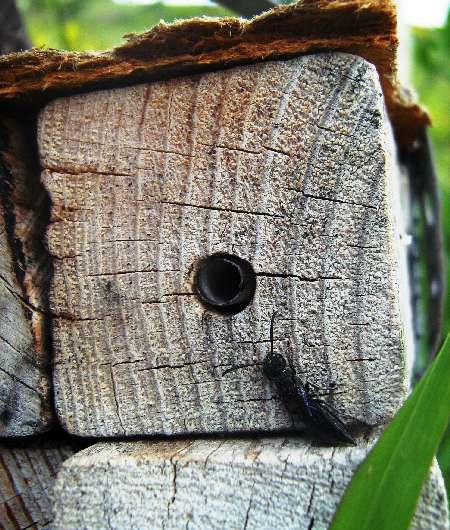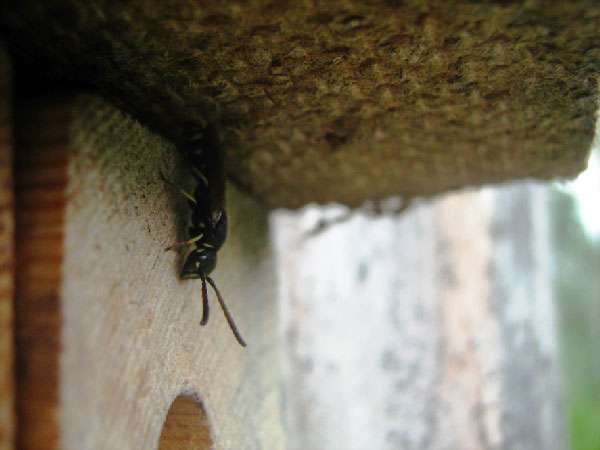Sunflower pollen protects bees from parasites

Plant pollens vary in quality as food sources for bees, and pollen from the sunflower family (the family that includes dandelions, daisies, and thistles) is known to have some unpleasant qualities. Bees fed exclusively sunflower pollen often develop poorly, slowly, or not at all. Yet many bee species collect pollen exclusively from this family; in fact, specialization on sunflower pollen has evolved multiple times in bees. Research by Dakota Spear and colleagues suggests that parasites could be part of the explanation.
Sarah Silverman, at the time a McGill University undergraduate doing summer research on solitary mason bees at the Rocky Mountain Biological Laboratory (RMBL) in Colorado, USA (with University of Ottawa professor Jessica Forrest), noticed that bee species specializing on sunflower pollen were not attacked by a common brood-parasitic wasp, Sapyga.
The wasp frequently lays eggs in the nests of other mason bee species, where its larvae kill bee eggs and eat their pollen provisions. Silverman and Forrest hypothesized that the wasp might be unable to develop on the pollen provisions of sunflower specialists. The following summer, Spear—then an undergraduate at Pomona College doing a research internship at RMBL—took over the research. To test the hypothesis, she forced wasp larvae to feed on different types of pollen provisions, including those of sunflower specialists, and monitored their development and survival. As suspected, wasp survival was much lower on the sunflower provisions.
The authors conclude that specialization on sunflower pollen confers anti-parasite benefits; this may help explain the frequent evolution of specialization on sunflower pollen among bees. More generally, the results help explain why animals often evolve a taste for "nasty" foods.

More information: Dakota M. Spear et al, Asteraceae Pollen Provisions ProtectMason Bees (Hymenoptera: Megachilidae) from Brood Parasitism, The American Naturalist (2016). DOI: 10.1086/686241
Journal information: American Naturalist
Provided by University of Chicago





















